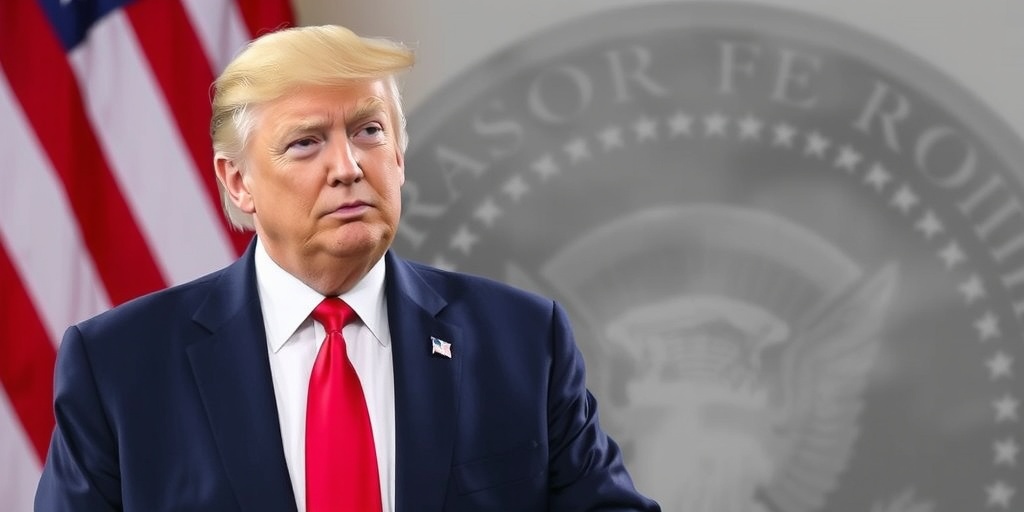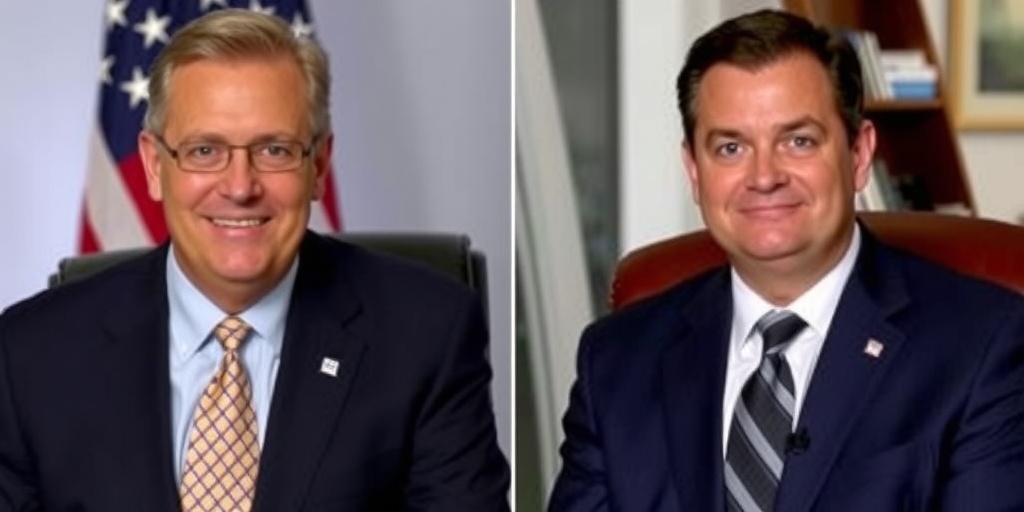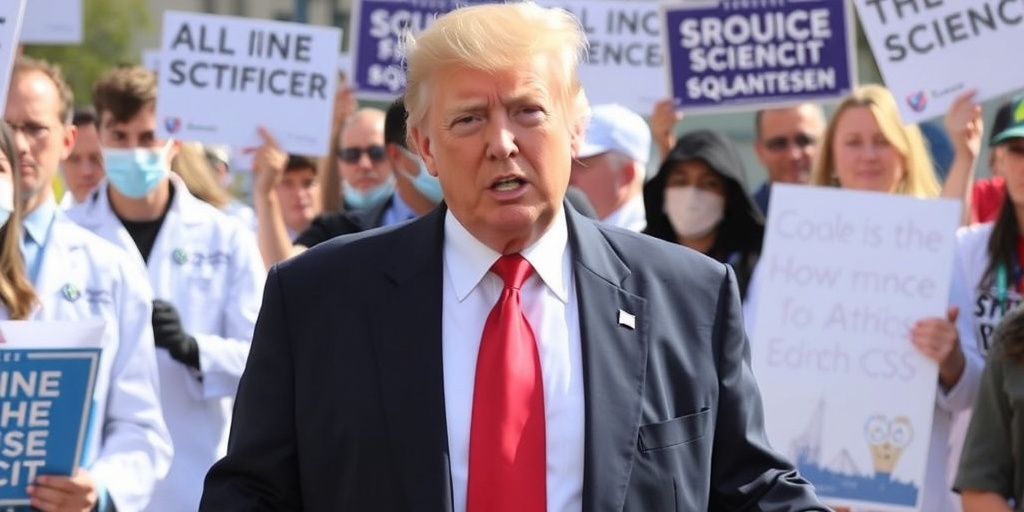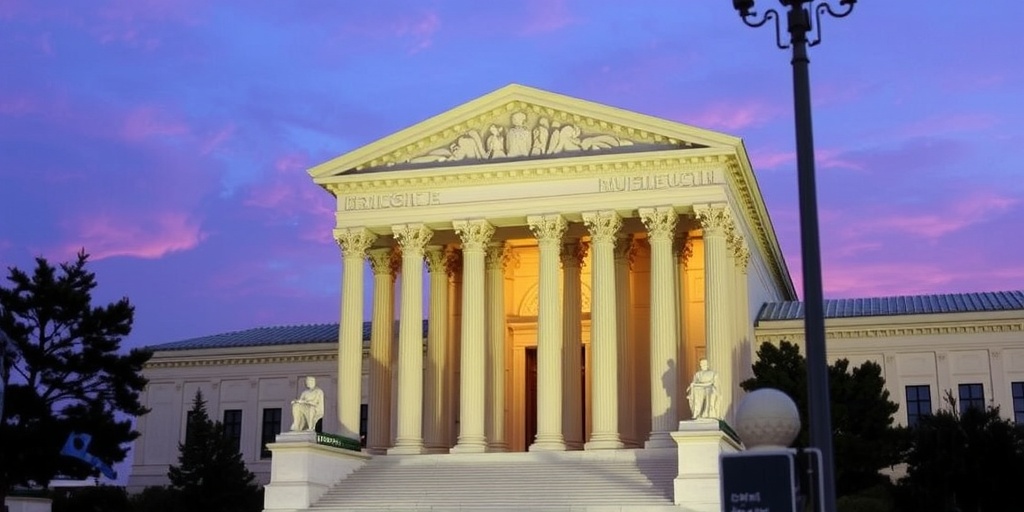Now Reading: Trump’s Unwavering Stance on Tariffs: ‘No Exceptions’ – Will It Hold?
-
01
Trump’s Unwavering Stance on Tariffs: ‘No Exceptions’ – Will It Hold?
Trump’s Unwavering Stance on Tariffs: ‘No Exceptions’ – Will It Hold?

Title: President Trump Resists Tariff Exemptions as New Measures Loom
As President Trump prepares to unveil new tariffs on foreign metals later this week, he remains steadfast in his commitment to avoiding the exemptions and exclusions that characterized his first trade war. However, the administration has already softened its stance on other tariffs in response to pressures from various industries, including automakers and agricultural producers.
Earlier this week, the president announced sweeping tariffs on all imports from Canada and Mexico, but following significant lobbying, he quickly reversed that decision. By Thursday, Trump had indefinitely suspended these tariffs for products compliant with the United States-Mexico-Canada Agreement (USMCA), which covers nearly half of all imports from Mexico and about 40% of imports from Canada.
This rollback has opened the door for industries and foreign governments to lobby for exemptions from the upcoming metals tariffs set to take effect at 12:01 a.m. Wednesday, as well as other tariffs projected for April 2. Japan’s trade minister is reportedly planning to seek relief from automobile tariffs during upcoming meetings in Washington, indicating the high stakes involved in these negotiations.
Matt Blunt, president of the American Automotive Policy Council—which represents U.S. automakers including Ford, General Motors, and Stellantis—stated that the majority of steel and aluminum used by these companies is sourced from North America. He expressed concerns that imposing tariffs on Canada and Mexico could substantially raise costs for suppliers and hurt the automotive sector.
While Trump has publicly vowed not to offer exceptions to the upcoming metal levies, the allure of cutting deals could prove irresistible for the president. Historically, he has used tariffs as a means to establish immediate influence over companies and foreign nations, creating a quid pro quo dynamic. By imposing tariffs and then lifting them, Trump has often won praise from those affected, thereby consolidating his political support.
Rick McGahey, an economist at the New School, criticized this approach, likening it to authoritarian tactics. He pointed out that such practices allow the president to manipulate public policy for personal political gain. In a recent call, executives from major automotive companies warned Trump that tariffs on vehicles and parts could lead to devastating consequences, costing billions and effectively erasing their profits. When the president granted them a temporary reprieve, the companies publicly expressed their gratitude, with General Motors thanking him for his support.
Vice President JD Vance has indicated that the administration is not inclined to offer exclusions beyond the automotive industry. He stated that Trump prefers broad application of tariffs, rather than creating a multitude of exemptions for different sectors.
However, by Thursday, the administration had already compromised by excluding products covered under the USMCA from the tariffs and reducing the tariff on Canadian potash from 25% to 10%. Pushback from farmers, who raised concerns about increased costs associated with potash—a crucial fertilizer—was likely influential in this decision. Senator Chuck Grassley, a Republican from Iowa, publicly commended Trump for recognizing the needs of farmers.
Despite some hesitance from Republican lawmakers regarding the imposition of tariffs, many are waiting to see a clear plan for lifting them before taking a more definitive stand. The Trump administration has previously asserted that it does not plan to undermine its tariff measures with exemptions, claiming that such allowances weaken the effectiveness of the tariffs.
Chad Bown, a senior fellow at the Peterson Institute for International Economics, noted that in his first term, Trump initially imposed tariffs on steel and aluminum but did not target certain countries from which most U.S. metal imports come, instead inviting them to negotiate. Countries such as South Korea, Argentina, and Brazil agreed to quotas limiting their exports in response to the tariffs. Subsequently, Canada and Mexico negotiated their own terms as part of the USMCA agreement.
It is evident that while Trump may be reluctant to establish a formal system for tariff exemptions like in his first term, he may still leave room for personal negotiations. During that time, hundreds of thousands of exemption requests were made, often with the help of expensive law firms. The Office of the United States Trade Representative received over 50,000 requests for China tariffs, while nearly half a million exclusion requests were filed for steel and aluminum tariffs alone.
For some manufacturers, the need for exemptions remains critical, as not all necessary parts and raw materials are readily produced in the United States. Yet, there is also a strong faction within Trump’s base resisting any exemptions, arguing that they would undercut the powerful influence of existing tariffs.
Nick Iacovella, the executive vice president of the Coalition for a Prosperous America, emphasized that broad steel and aluminum tariffs are essential for their efficacy and advocated for the resistance against exceptions that might disadvantage American producers. In a recent letter, five steel industry organizations declared their support for the tariffs and voiced their opposition to any exemptions, arguing that past exceptions undermined American economic security and job creation.
As the administration prepares to implement new tariffs, the balancing act between protecting domestic industries and managing political pressures continues, raising questions about the future of U.S. trade policy under Trump’s leadership.
Stay Informed With the Latest & Most Important News
Previous Post
Next Post
-
 01New technology breakthrough has everyone talking right now
01New technology breakthrough has everyone talking right now -
 02Unbelievable life hack everyone needs to try today
02Unbelievable life hack everyone needs to try today -
 03Fascinating discovery found buried deep beneath the ocean
03Fascinating discovery found buried deep beneath the ocean -
 04Man invents genius device that solves everyday problems
04Man invents genius device that solves everyday problems -
 05Shocking discovery that changes what we know forever
05Shocking discovery that changes what we know forever -
 06Internet goes wild over celebrity’s unexpected fashion choice
06Internet goes wild over celebrity’s unexpected fashion choice -
 07Rare animal sighting stuns scientists and wildlife lovers
07Rare animal sighting stuns scientists and wildlife lovers





















